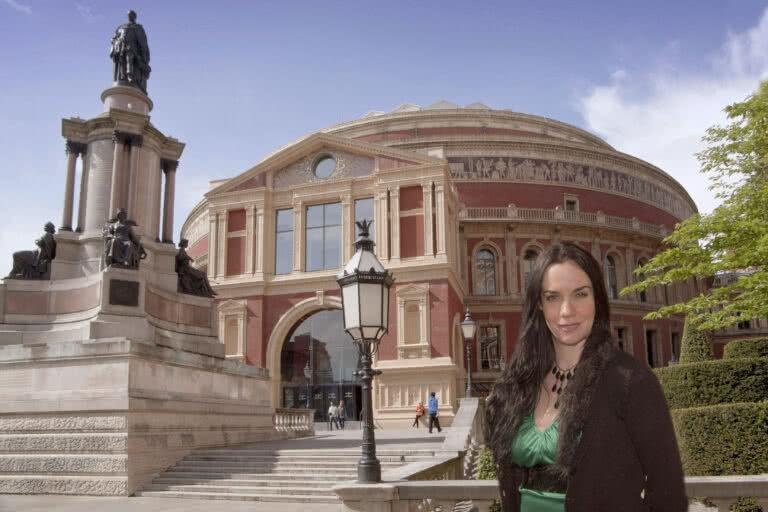This is a guest post by Lucy Noble, Director of Events at the Royal Albert Hall
We promote around 60 of the events in our auditorium each year, as well as more than 400 across our other spaces, including the Elgar Room and Verdi – Italian Kitchen, but as a charity, we have to be careful how we spend our money.
Whether it’s to promote an individual event like last Christmas’s Kylie concert, or to publicise our upcoming seasons – including the Hall’s first ever Festival of Film and next spring’s Love Classical festival – these six rules of successful event promotion help us get the most for our money. Hopefully they’ll help you too.
1. Know your audience
This is key. Know who you are aiming your event at and which channels they consume. Are they always online or are a more traditional audience, best reached through print? And what kind of message or content is going to appeal to them? Tailor your campaign to those audiences and channels: your decisions should be driven by who the audience is, not whether someone in the office prefers one visual to another.
For our upcoming children’s event, My Great Orchestral Adventure, we’ve created a bright and friendly illustration rather than leading with photography, highlighted that the concert is at half term, and included information that parents need, like age-suitability and material about our child-friendly restaurant.

2. Don’t just sell
We’re very careful with our data and take great care to ensure we don’t bombard anyone. We try to mix selling tickets with telling stories, including several non-commercial blog posts in our main e-newsletters, which offer an insight into our venue and its history, because we recognise it’s something that interests our audience. We want them to feel they are part of the Hall, not merely a consumer.
3. Be inquisitive
We constantly run ‘A/B’ test campaigns to learn what works best, covering everything from the difference in success between the words ‘book now’ and ‘buy tickets’ to the click-through rates to our website inspired by pictures of people eating fish or people eating burgers! We monitor all results through both Wordfly – our email provider – and Google Analytics, see what’s working and what isn’t, and adjust the campaign accordingly (more of which below).
Related: How to Double Your Ticket Sales with Conversion Rate Optimisation
4. Move with the times
A couple of years ago, our analytics told us that we were approaching 50 per cent of monthly visits to our website from non-desktop devices. So we created a new website with a mobile-first approach, creating a responsive site which should work as well on a phone as it does on a desktop.
Related: The Fundamentals of a Great Event Website
Other advances include being able to target specific audiences online: for War Horse: The Story in Concert, we’ve used our knowledge of the audience to run Facebook ads aimed at English-speaking parents of eight to 12-year-olds within a 20km radius of Greater London who are interested in similar productions.

5. Analyse this
Analytics are crucial. The free tools that Google Analytics and TagWords provide allow us to track what people are doing on the site, where they’re coming from, how they’re behaving, where they’re dropping out and whether there are patterns – either geographical or technological – which we can identify to make their experience better.
Related: How to Sell More Tickets with Analytics
The pages for our film-and-live-orchestra events – including Independence Day Live and Aliens Live – are far more likely be accessed from a mobile device (65 per cent compared to a site-wide average of 51 per cent), so we ensure that the essential information appears as high up the mobile template as possible. We’re about to completely change the search function on our site as a result of months of analysis concerning what people are searching for and whether or not our current search facility gives them what they want.
6. PR is free
Journalists and broadcast media bookers want novelty or a name: if you can give them either, then you’ve landed free publicity. In the past few months we’ve had Jose Carreras singing live on the roof of the BBC for The One Show, worked with celebrated film composer David Arnold to promote Independence Day Live across print, radio and TV, and run previously unseen photos of rock legends like Noel Gallagher and Paul McCartney in Metro, Music Week and Q Magazine, ahead of a major new exhibition.
A small amount of money for a PR stunt can also go a long way, provided you can craft an unforgettable image. To herald Western Music in Concert we had a horse and stunt rider rearing up on our steps, and for Independence Day Live we shot two tickets into space (image below). The fee for the latter could have been prohibitive, but instead we agreed a deal that included 12 free passes to the show. Tickets are another way to secure great coverage, whether through competitions, in exchange for ‘book now’ slots or – for longer runs – to land those all-important reviews.

In conclusion
By following these 6 simple rules, we maximise the impact of our marketing without blowing the budget.
If you enjoyed this, you should also check out our 58 Free Event Promotion Ideas.



